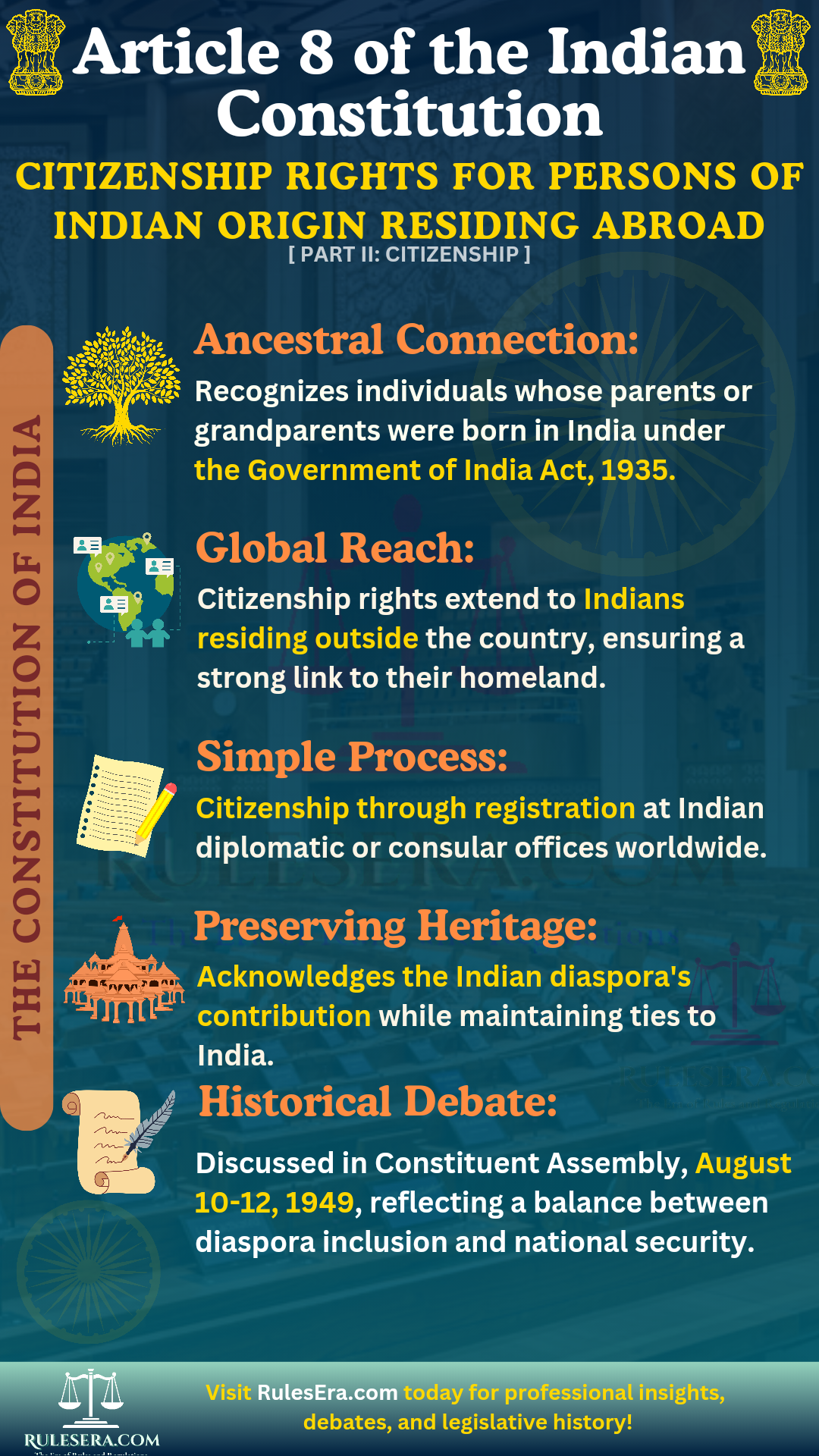Article 8: Rights of Citizenship of Persons of Indian Origin Residing Outside India

Original Text:
Notwithstanding anything in article 5, any person who or either of whose parents or any of whose grandparents was born in India as defined in the Government of India Act, 1935 (as originally enacted), and who is ordinarily residing in any country outside India as so defined shall be deemed to be a citizen of India if he has been registered as a citizen of India by the diplomatic or consular representative of India in the country where he is for the time being residing on an application made by him therefor to such diplomatic or consular representative, whether before or after the commencement of this Constitution, in the form and manner prescribed by the Government of the Dominion of India or the Government of India.
Explanation:
Article 8 of the Constitution of India addresses the citizenship rights of individuals of Indian origin who are residing outside India. This provision extends citizenship to those who, despite living abroad, have ancestral connections to India and wish to maintain their citizenship link through a registration process with diplomatic representatives.
Amendments:
Although Article 8 itself remains unchanged, additional legislation like the Citizenship Act, 1955, has expanded pathways for Indian-origin individuals living abroad to register as citizens, making it easier for them to retain their connection with India.
Historical Context and Implications:
This article recognizes the significant role of the Indian diaspora, allowing those with Indian heritage to maintain a formal link with their homeland through citizenship registration. Article 8 reflects India's inclusive approach toward its global community.
Legislative History:
Article 8, initially Article 5B during drafting, was debated over three days from August 10-12, 1949. These discussions reflected the framers' recognition of India’s historical ties to those of Indian origin residing abroad and were crucial in shaping India's citizenship policy.
Debates and Deliberations:
During the Constituent Assembly debates, Dr. B.R. Ambedkar emphasized the complexities of citizenship for those abroad, acknowledging the Indian diaspora's role. Other members highlighted the need for a citizenship framework that supported India’s national security while accommodating the realities of global migration.
Frequently Asked Questions (FAQs):
Article 8 applies to individuals of Indian origin residing abroad whose parents or grandparents were born in India as per the Government of India Act, 1935.
They must apply for registration through an Indian diplomatic or consular representative in the country of residence, following procedures prescribed by the Indian government.
Article 8 recognizes the Indian diaspora by providing a means for Indian-origin individuals to maintain formal citizenship ties to India despite residing abroad.
During debates, framers like Dr. B.R. Ambedkar discussed how Article 8 could balance India’s inclusive approach to citizenship while addressing the concerns of the Indian diaspora.